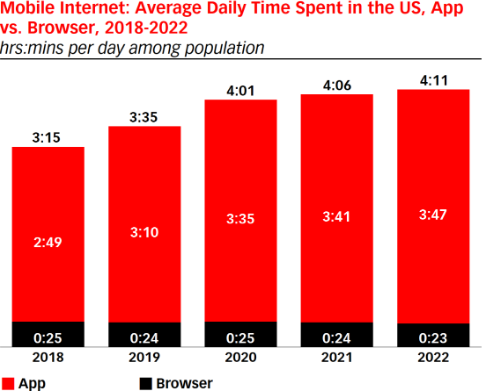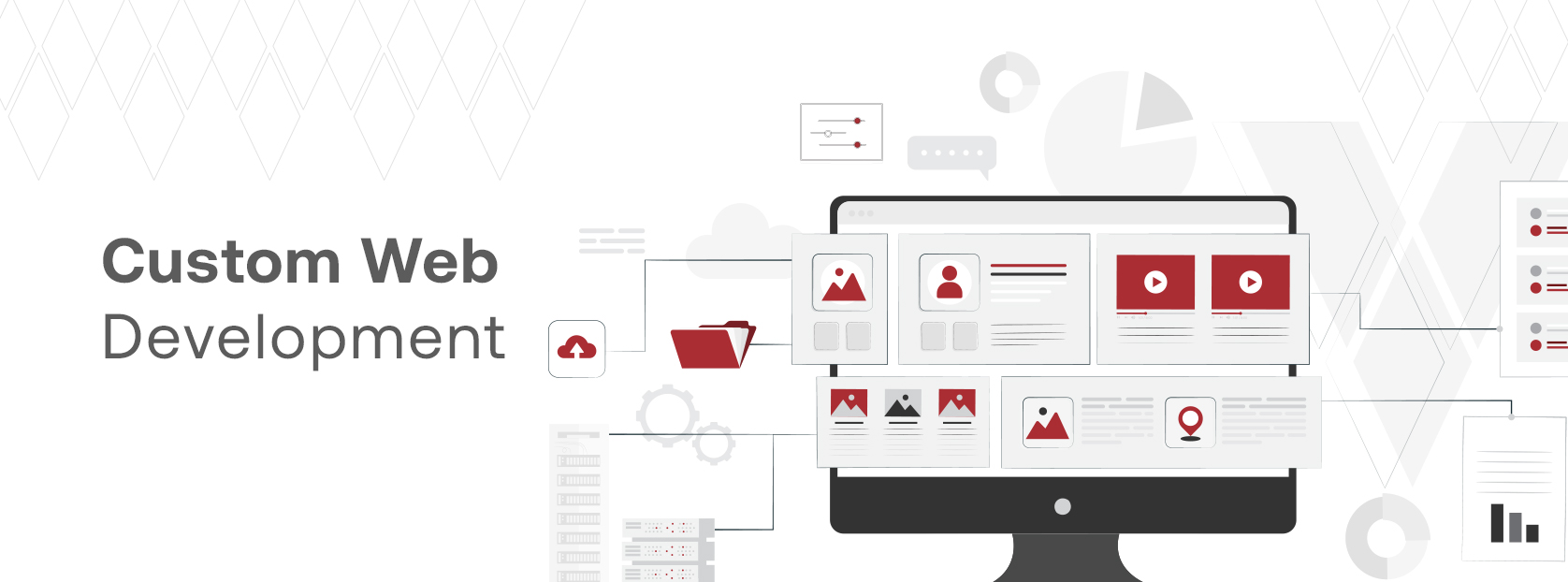
9 Key Phases of Mobile App Development
Nowadays, people are not only using their phones more but are also spending increasing amounts of time on apps. As app usage keeps growing, a business needs to have its own app, especially if you are in the e-commerce industry—otherwise, you would be left behind. Investing in a mobile app is an intelligent business decision to remain competitive in the fast digital world.

What is Mobile App Development?
Mobile app development is the process of creating software applications specifically designed to run on mobile devices, such as smartphones and tablets. These apps can be developed for various platforms, including iOS (Apple devices), Android (Google's mobile operating system), or hybrid apps that work on multiple platforms.
The process involves several stages, including planning, designing, developing, testing, and launching the app. Mobile app development typically focuses on delivering a user-friendly experience (UX), integrating features that cater to user needs, and confirming the app functions perfectly across different devices.
Phases of Mobile App Development
There are quick ways to develop apps by using minimal coding and rushing them to the app stores, but this often sacrifices quality.
Let’s explore the key phases of mobile app development and the challenges that come with it:
- Idea and Research Phase: Every app starts with a core idea. To turn that idea into a reality, you need to outline the app’s purpose and target users. Competitor analysis is important because it provides valuable insights into what works and what doesn’t in your industry.
Competitor analysis can identify gaps in the market, understand customer expectations, and discover opportunities to differentiate your app. It helps you avoid mistakes others have made, learn from their successes, and stay ahead of market trends. - Wireframing and Documentation: Wireframes act as blueprints for your app, providing a visual outline of its pages and functionalities. They are typically simple and help clarify usability issues early on. This step is also useful for gathering feedback and making initial adjustments.
- Assessing Technical Feasibility: It is important to assess its technical feasibility. You need to confirm whether your back-end systems and APIs can support the proposed features. Depending on the platform (iOS, Android, or both), different technical requirements are addressed as per their mechanism.
- Rapid Prototyping: A prototype is a preliminary version of the app that allows you to test the core concepts and user interactions. The goal here is to get the app into users’ hands as quickly as possible to gather feedback. This prototype doesn't need to be fully polished but should offer a working model of the main features and functionalities.
- Design Phase (UI/UX): Once your prototype is tested, the design phase begins. User experience (UX) designers focus on how the app will function, while user interface (UI) designers focus on the look and aesthetic appeal.
- Development Phase: Depending on the complexity of the app, this phase may involve creating multiple modules and back-end functionalities. Developers will write code, integrate third-party services, and build the necessary infrastructure to support the app.
- Testing and Quality Assurance (QA): Testing should be an ongoing process throughout app development. Different types of tests are conducted, such as usability testing, performance testing, and security testing. User acceptance testing (UAT) is also important, where the app is shared with target users to gather feedback and make final adjustments.
- Deployment and Launch: Once the app has passed all tests, it’s time to prepare for launch. Submitting the app to stores like Google Play or the Apple App Store requires following each platform’s guidelines. The launch isn’t the end of the journey, however. Post-launch, it’s essential to gather user feedback and continue updating the app to improve its performance and address any issues.
- Ongoing Maintenance: After the app is live, continuous monitoring is crucial for addressing bugs, increase performance,and adding new features based on user feedback.
Developing a mobile app is an ongoing process that doesn’t end with deployment. Businesses can create apps that engage users and deliver value long after launch by following these phases and applying best practices.
How Vertex IT Systems Delivers Comprehensive Mobile App Development Solutions
At Vertex IT Systems, we’re here to support your business every step of the way. Our team confirms that your app is tested thoroughly and runs perfectly after it launches.

1) Design of UI/UX
The success of a mobile app depends on how easy and enjoyable it is to use. Vertex IT Systems have experts who focus on creating clear and simple designs that make your app visually appealing and easy to navigate. When choosing a mobile app development company, it’s important to pick one that knows how to keep your users engaged and happy.

2) Automated QA and Testing
Quality assurance is a key part of our mobile app development services. Vertex IT Systems provides automated testing to make sure your app works perfectly. They find and fix bugs early, so that you may not have to worry about problems later on.
3) Custom iOS and Android App Development
Vertex IT Systems covers everything whether your audience uses iPhones or Android devices. As an Android mobile app development company, They build reliable apps for iPhones, iPads, Apple Watches, Apple TVs, and all kinds of Android devices. If you are not sure what is the best mobile app development platform, They can help you choose the right one for your needs.
4) Hybrid Mobile App Development
Vertex IT Systems also offers hybrid mobile app development. These apps work on multiple devices, which saves you time and money. This approach is especially useful for enterprise mobile app development, where it’s important to be efficient and scalable.
Vertex IT Systems Makes Mobile App Development Easy
Vertex IT Systems team supports you through every step, such as planning and post-launching support, and making sure your app meets your expectations.

Here is how we deal with 3 major phases of mobile app development:
1) Planning and Design
Every great app starts with a solid plan. Vertex IT Systems takes the time to understand your business and design an easy-to-use app. They customize their planning and design process to fit your needs in mobile app development for small businesses or larger enterprises.
2) Development and Testing
Once the planning is done, Their developers build your app using the latest technologies. They also test it thoroughly to make sure it works perfectly before it’s launched.
3) Deployment and Support
Vertex IT Systems monitors its performance and provides ongoing support to keep it running perfectly. We’re here to help your app grow with your business whenever you need updates, maintenance, or new features.
Excellence Through Teamwork
Vertex IT Systems believes that working together leads to great results. Our DevOps engineers collaborate with you to create IT solutions that fit your customers’ needs.
Reliable
Vertex IT Systems is ready to help your business succeed. With experienced experts and a track record of successful launches, they can deliver high-quality solutions every time.
Customer Driven Solutions
Vertex IT Systems hires top talent to create innovative solutions whenever you need technology consulting, software development, or a website redesign. Their approach confirms that the solutions they provide help you reach your business goals.
Take Your Business to The Next Level with Vertex IT Systems
At Vertex IT Systems, we don’t just build apps but we create powerful tools that transform how customers interact with your products and offerings. Our dedicated team is turning your vision into reality, delivering functional mobile apps that increase growth and customer engagement. Your success is our mission, and we are here to boost your mobile app so that it stands out in today’s world.
Are you ready to make an impact with interactive mobile apps ? Let’s get started!FAQs
Why should I choose Vertex IT Systems for mobile app development?
Vertex IT Systems offers a comprehensive approach to mobile app development. It provides end- to-end services from UI/UX design to deployment and ongoing support. They focus on creating user-friendly, reliable apps specific to your business needs.
Do Vertex IT Systems offer post-launch support for mobile apps?
Yes, they provide ongoing support after your app is launched. This includes monitoring performance, offering updates, and adding new features as needed to confirm your app continues to meet your business goals.
How does Vertex IT Systems know which mobile app development platform is best for my business?
Team at Vertex IT Systems will work closely with you to understand your business needs and target audience. They’ll help you choose the best platform, whether iOS, Android, or a hybrid solution, to confirm your app aligns with your goals.
Connect with Our Experts Now!
Schedule a CallLatest Blogs


Full Stack Development Services | Coming at GITEX 2024
Read More
Custom Web Development Services and Professional Solutions from Top Talent
Read More
Discover Agile Development: Core Principles, Benefits, and Impact
Read More
